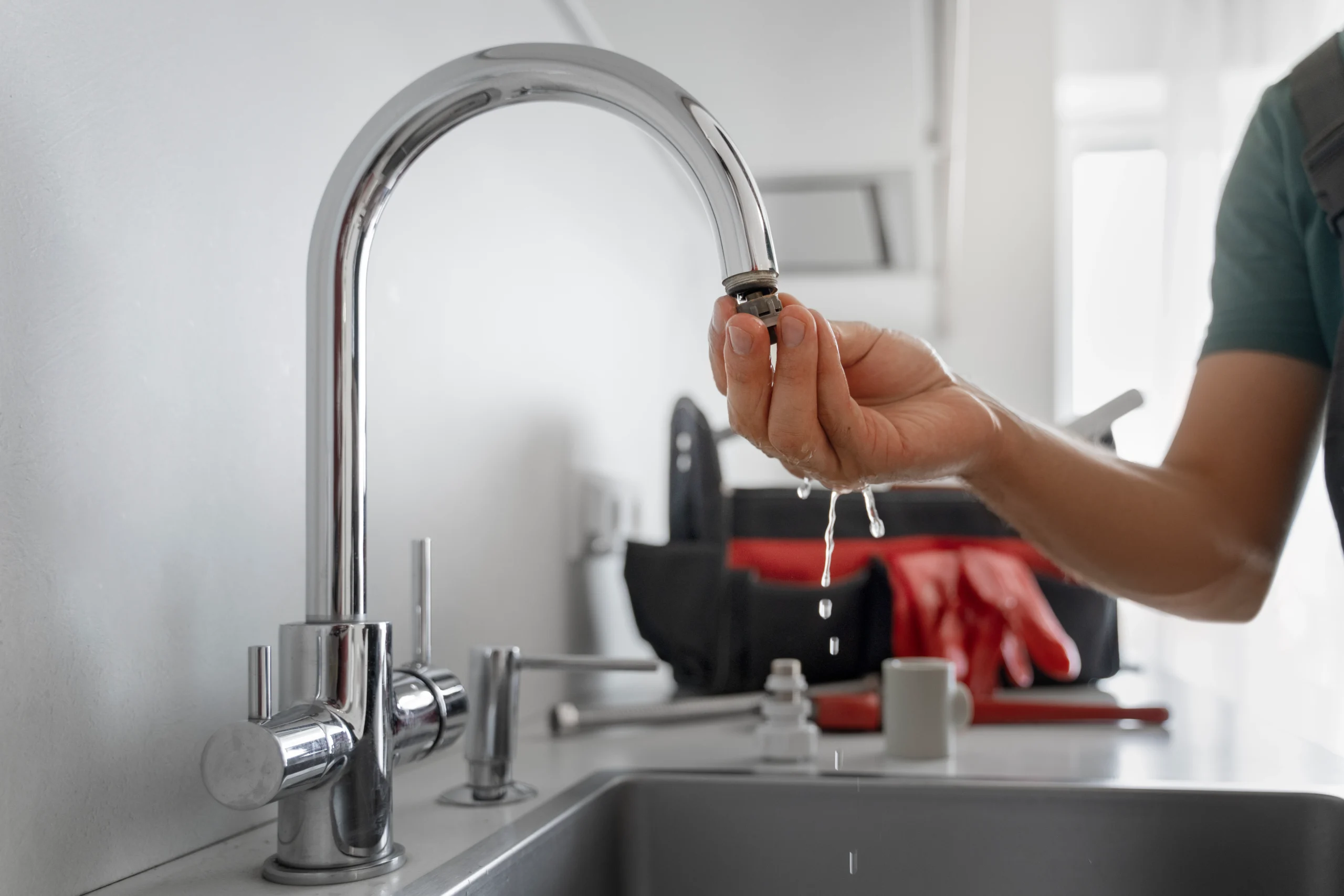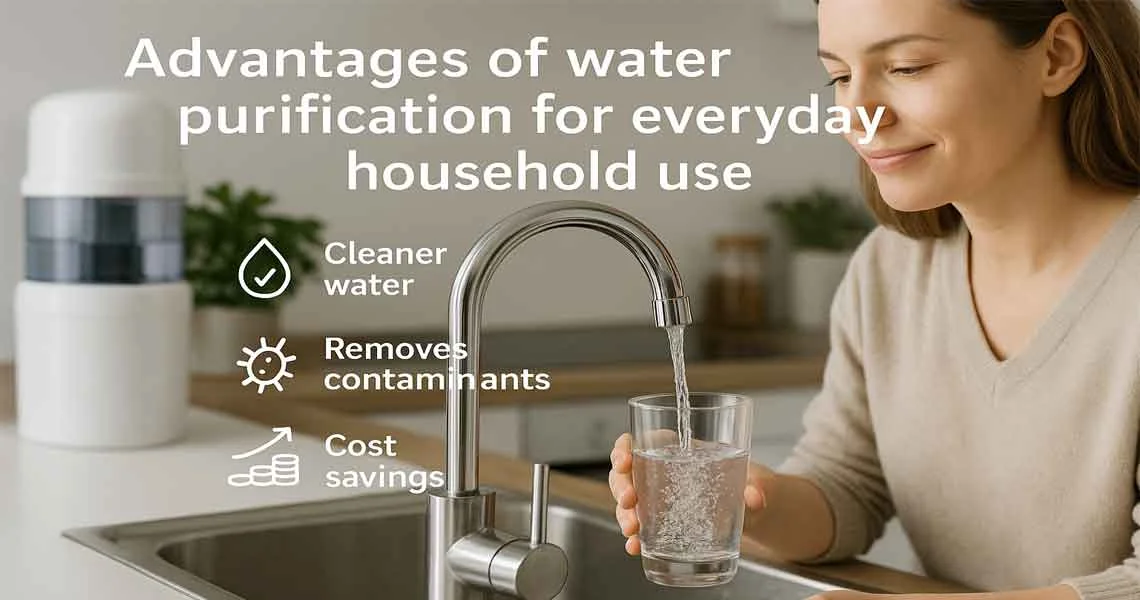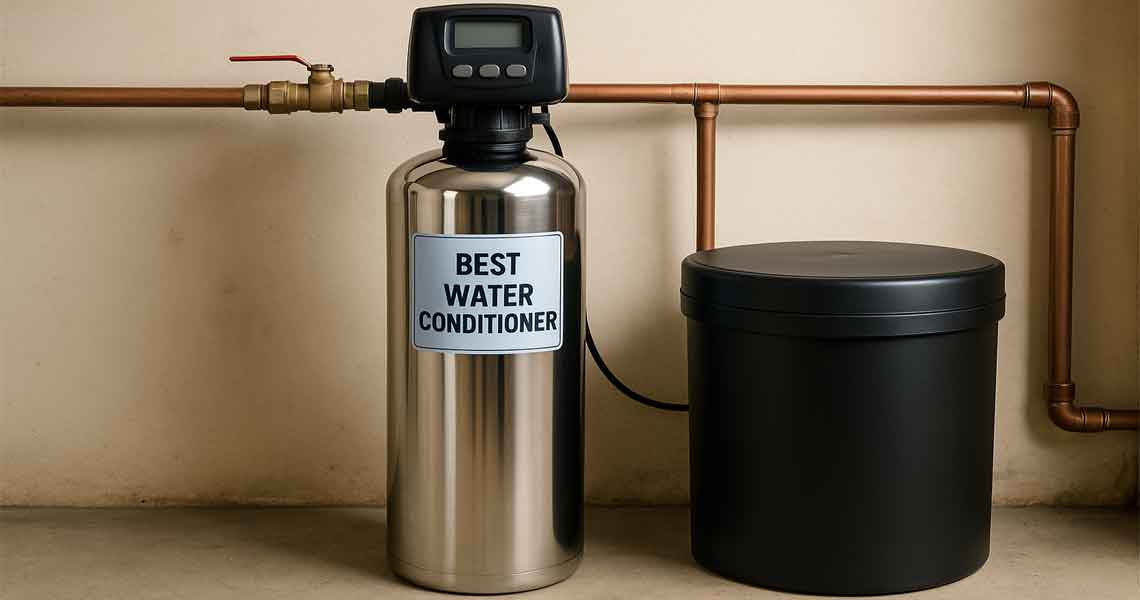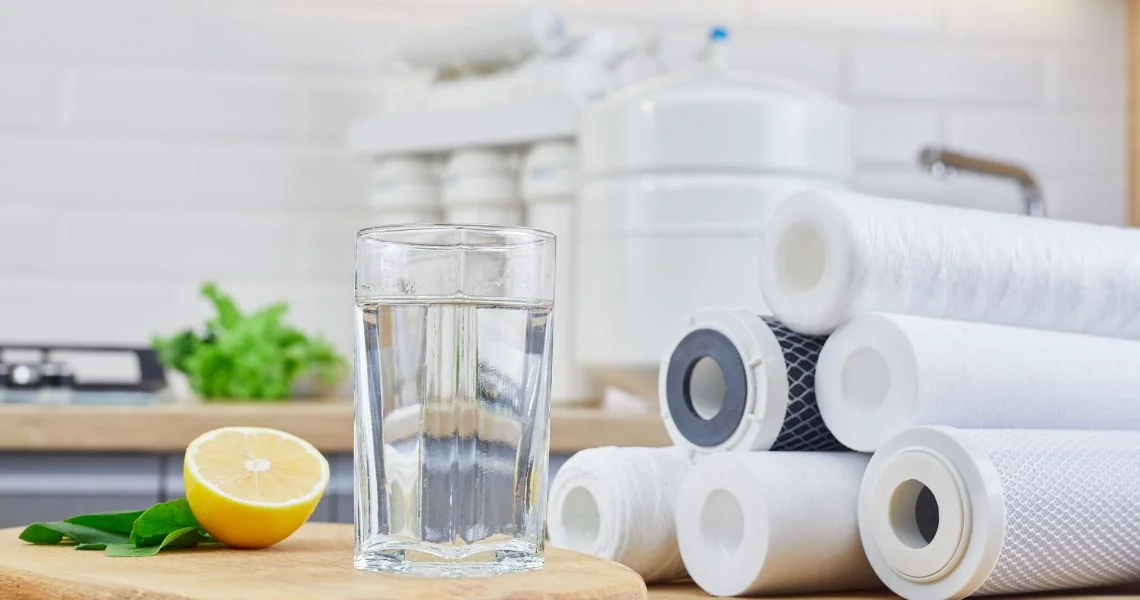You’re likely dealing with hard water if you’ve noticed chalky spots on your dishes, dry skin after showers, or scale buildup on your faucets. It’s a common issue in many parts of the country, especially in southern states like Florida. The solution? Find the best home water softener to protect your appliances, improve water quality, and make everyday life more comfortable.
Wellness Water provides advanced technologies that can benefit the entire household. Our products embody effectiveness and reliability, softening hard water and replenishing essential minerals clients desire. Now, look at how to choose the best whole home water purification system.
What Does a Water Softener Do?
Water softeners are designed to remove calcium and magnesium—the minerals responsible for hard water. These systems typically use ion exchange to replace those minerals with sodium or potassium, making your water “soft.”
The result? Softer skin and hair, cleaner laundry, and longer-lasting appliances with a residential water conditioning system Florida homeowners can rely on.
Water Softeners vs Water Filters
A whole-house water filtration system eliminates chlorine, organic sediment, bacteria, and various heavy metals in water. It treats water from its source, so any tap in your house can produce safe water.
A whole-home water softener solution deals with hard water, which contains high amounts of minerals such as calcium and magnesium. These minerals can form scales in pipes, corrode appliances, and hinder one’s ability to wash clothes or take a bath. A water softener purifier addresses such issues through ion exchange or salt-centered and salt-less strategies that reduce hardness. That’s why it’s important to understand water softeners vs water filters when making your decision.
How to Evaluate Your Water Needs
Before buying anything, consider these factors:
- Strange tastes or odors: Depending on which chemicals are added, your water might have an unpleasant taste like chlorine.
- Cloudy water: Impurities such as sediment or particles in your water may make your water look foggy.
- Contaminant concerns: Fulfilling bacteria, viruses, and even heavy metals should sound like a loud bell for you to have a home water filtration system Pensacola FL.
What’s the Best Water Softener for Florida?
Florida homes often have high mineral content due to the naturally occurring limestone in the groundwater. The best water softener for Florida homes is a salt-based system that can handle high hardness levels and effectively reduce scale buildup.
Some systems even include a filtration component, which can be a wise choice if your area also has chemical contaminants—making them some of the top water softeners available.
Features to Look For
Here are some must-have features in today’s best whole house water filter system:
- Metered Regeneration: This feature allows the system to regenerate only when needed, saving water and salt.
- High-Capacity Resin Tank: Useful for larger families or very hard water.
- Low Salt Indicator: A simple but helpful alert that it’s time to refill.
- User-Friendly Controls: Digital displays and customizable settings make operation easier.
If you’re still asking how to choose water filtration system options, start with these features.
Installation and Maintenance
Some systems, especially compact models, are DIY-friendly. However, professional installation might be necessary for installing a whole-house system or dealing with complex plumbing.
Maintenance is usually minimal—just keep an eye on salt levels and clean the brine tank occasionally. Many of the best water filtration systems for the home are designed with convenience in mind.
Budget and Long-Term Savings
While softening your water has an upfront cost, the long-term savings can be significant. You’ll use less soap, extend the life of your appliances, and reduce plumbing repairs. That makes even the best whole home water filtration system a wise investment compared to ongoing water filtration problems.
Types of Water Softeners & Filtration Systems
When choosing the best whole home water purification system, it’s important to understand the different types available. Each system has unique benefits depending on your household’s needs, water quality, and budget.
1. Salt-Based Water Softeners
These are the most common and effective systems for tackling hard water. They use ion exchange technology to replace calcium and magnesium ions (which cause hardness) with sodium or potassium.
Best For:
- Homes with very hard water (like many areas in Florida)
- Families who want maximum scale prevention for plumbing and appliances
Pros: Highly effective, long-lasting results
Cons: Requires regular salt refills
2. Salt-Free Conditioners
Instead of removing minerals, salt-free systems neutralize hardness minerals so they don’t stick to pipes or appliances. They’re often called water conditioners rather than true softeners.
Best For:
- Homes with moderately hard water
- Homeowners looking for low-maintenance solutions without salt or chemicals
Pros: Eco-friendly, minimal upkeep
Cons: Not as effective in very hard water areas
3. Dual Systems (Softener + Filter)
A dual system combines a water softener and a whole house water filtration system. This setup handles both hardness minerals and contaminants such as chlorine, sediment, or heavy metals.
Best For:
- Families who want all-in-one protection
- Areas with both high hardness and water quality concerns (e.g., taste, odor, chlorine)
Pros: Complete solution for cleaner, softer, healthier water
Cons: Higher upfront investment
4. Reverse Osmosis Systems
Reverse osmosis (RO) uses a multi-stage filtration process and a semi-permeable membrane to remove impurities. While not technically a softener, RO systems can filter out dissolved salts, heavy metals, and even bacteria.
Best For:
- Drinking water at a specific tap (kitchen sink)
- Households with health-focused water concerns
Pros: Provides some of the purest-tasting water
Cons: Slower flow, typically not a whole-house solution unless combined with other systems
Final Thoughts
Are you unsure how to choose a water softener? Start with your water test results, factor in your household’s needs, and look for trusted brands with solid warranties and customer support. Doing a little homework now can save you money and hassle later.
Never accept anything but the highest-quality water for your home. Hence, whether you need a whole-home water softener system, a water filtration Pensacola FL service, or both, Wellness Water Purification has you covered.
Enjoy clean, soft, and mineral-rich water with our advanced technology, built to keep your family healthy and your appliances running smoothly. With today’s top water filtration systems, you can ensure safe water for years to come.
FAQs
- How do I know if I have hard water?
Common signs include soap that doesn’t lather well, dry skin, dull hair, and limescale buildup on faucets. A water test kit can confirm the hardness level.
- Can I install a water softener myself?
Some models are designed for easy DIY installation, but others—substantial whole-home units—may require a professional plumber.
- How often do I need to add salt?
Most systems need a salt refill every 4 to 6 weeks, depending on your usage and water hardness.
- Does soft water taste salty?
No. The amount of sodium added during ion exchange is minimal and typically undetectable. If you’re concerned, pair your system with a reverse osmosis filter.
- Do you need a water softener in Florida?
Yes, in most cases. Florida’s groundwater is naturally high in calcium and magnesium, which causes hard water. A softener can significantly improve your water quality.





